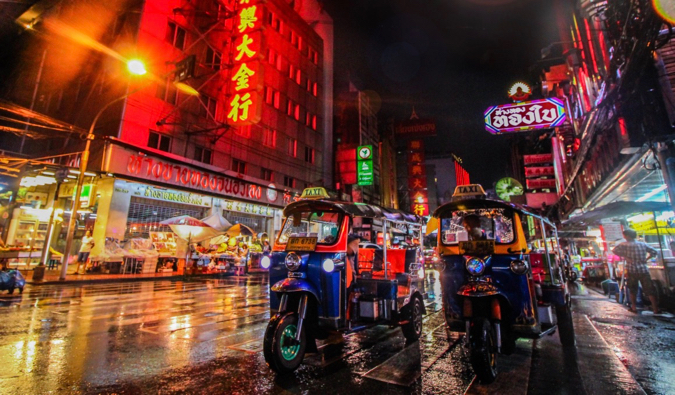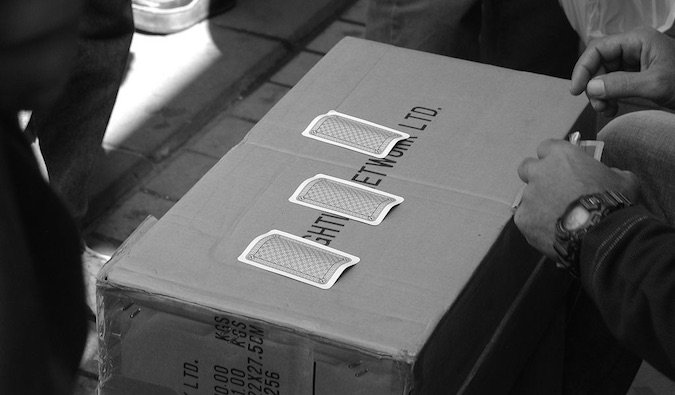
Posted: 7/13/2019 | July 13th, 2019
Offering pristine nature and access to the Amazon rainforest, historic cities and colonial architecture, and lots of affordable food and activities, Brazil will have some something for every traveler.
A popular destination for revelers looking to party hard at Carnival as well as a hot spot for adventure junkies and beachgoers, Brazil is a country known for its amazing weather and pristine landscapes.
But is it safe?
Brazil has a reputation for being a rough and tumble destination, one where travelers need to be extra cautious and on their guard at all times.
Due to rising inequality, unfortunately, this is the case. Petty theft and street crime are a common occurrence in Brazil. The crime rate in Brazil has been on the rise for many years now (it was up almost 50% between 2015 and 2016) so travelers here will need to be on vigilant
But that doesn’t mean you should avoid the country. You just need to be a smart traveler. Millions of people visit the country every year and don’t have a problem. As long as you follow the suggested safety tips, you’ll minimize the likelihood anything bad will happen to you!
Here is everything you need to know to stay safe and make the most out of your next trip to Brazil.
Table of Contents
13 Safety Tips for Brazil
To help you stay safe in Brazil, here are 13 tips that will keep both you and your possessions out of harm’s way:
1. Walk with purpose – When out exploring, always walk with purpose. Look like you’re heading somewhere in specific, even if you’re not. Pickpockets and muggers look for travelers who are unsure of themselves. Don’t look like a target.
2. Don’t carry cash – Carry only the minimum cash needed for the day. Keep the rest locked up back in your accommodation.
3. Separate your cards – If you have more than one credit or debit card, keep them separate. Bring one with you for the day (if you think you’ll need it) and leave the other one locked up in your room. That way, should something happen, you always have at least one card.
4. Don’t bring valuables to the beach – When you go to the beach, don’t take anything unnecessary. Towel, bathing suit, and a small amount of cash. That’s it! Anything else you bring is likely to disappear!
5. Dress to fit in – When out and about, dress down and try to fit in. Leave any valuables or jewelry at home. Don’t walk around flashing your camera or phone. If you need to use them, be discreet.
6. Carry a spare wallet – Bring a spare wallet with a small amount of cash in it. That way, if you get robbed or pickpocketed they won’t get your real wallet (where you’ll keep the rest of your cash and cards).
7. Avoid outdoor ATMs – If you need to withdraw cash, only use ATMs inside buildings. Always be aware of your surroundings before you take out your wallet.
8. Double check your accommodation – No matter where you are staying, be sure to check the doors and windows before leaving for the day and before settling in at night. Don’t leave anything valuable lying around your room; lock everything up.
9. Don’t accept free food/drinks – Never accept drinks or food from strangers. Drugging victims before they are robbed is common, so decline free food or drinks from strangers.
10. Watch out for distractions – Thieves will often try to distract you before they rob you. Be mindful of this common scam to help you stay vigilant.
Don’t walk around at night alone – If you have to, avoid city beaches, parks, and empty streets.
11. Take precautions when driving – If traveling by car, always keep your doors locked. By on guard at stop signs or red lights, especially at night. Many Brazilians won’t even stop for them to avoid the risk of a carjacking. Buy travel insurance before you go just in case you run into trouble. It’s always better to be safe than sorry!
Is Street Food in Brazil Safe?
Yep! You’ll find all sorts of amazing street food stands in cities like Rio as well as near the beaches and you’d be missing out if you didn’t try them! Just make sure to stick to places where there are a lot of locals gathered. That’s how you know the food is not only safe but delicious too!
I’d suggest avoiding anything with shrimp of seafood as it spoils quickly. But definitely try the mate as it can be quite refreshing (it’s served as an ice tea and is really good).
For the most part, you’ll encounter places that sell various kinds of meat. As long as it is fully cooked and hasn’t been in the sun all day, dive in and give it a try!
Don’t hesitate to ask your hotel or hostel staff for street food or restaurant suggestions too. They’ll no doubt have some delicious — and safe — options for you to try.
Is the Tap Water in Brazil Safe?
The water in Brazil is generally safe to drink, though most Brazilians still use filters or drink bottled water. The tap water generally has something of an odd taste, due to the purification process, so while it’s fine for brushing your teeth, it can taste odd if you’re just drinking it when you’re thirsty.
If staying in a hostel or Airbnb you’ll likely have access to a filter but it’s always a good idea to bring your own as well. Lifestraw and Steripen are two great products to help keep your water safe and potable.
Are Taxis in Brazil Safe?
Taxis in Brazil are safe and plentiful. They use meters as well, though it’s always a good idea to ask your hotel or hostel staff for an approximate fare before you head out. There are always a few bad apples who will try to rip you off, so just be sure to pay attention to the meter and make sure it isn’t rising abnormally quick.
Also, it’s always best to call your taxi in advance. Never flag a taxi on the street (this is especially true at night).
Is Brazil Safe for Solo Travelers?
Brazil is safe for solo travelers, though I would only suggest solo travelers visit here if they have some experience traveling solo already. By following the tips above, solo travelers will be able to have an amazing time in Brazil while staying safe.
If you are concerned as a solo traveler, try to meet-up with other travelers at hostels. Traveling together, you can keep each other company and deter any potential petty theft or robberies.
Is Brazil Safe for Solo Female Travelers?
Brazil faces real issues of poverty and crime so solo female travelers will need to be on guard. This is not a destination for new travelers and I would only suggest solo female travelers visit here if they are experienced solo travelers. Even then, you’ll want to make sure you take every precaution that you can.
Check with your hostel or hotel staff to find out if you should avoid any specific areas. Also, learn as much as the local language as you can so you don’t stand out.
So, is Brazil Safe?
Brazil is an amazing, vibrant country. But it’s not without its risks. Travelers here will need to be on guard and keep their wits about them. Petty theft and muggings are common, but if you follow the tips above you should be able to have an incredible visit while still staying safe.
Trust your gut, use common sense, and make sure you have comprehensive travel insurance. Do that, and you’ll be able to stay safe in Brazil have a memorable visit to this energetic country.
Heading to Brazil? Use the widget below to get a free travel insurance quote from World Nomads! That’s the company I’ve been using since I started traveling back in 2003!
Book Your Trip to Brazil: Logistical Tips and Tricks
Book Your Flight
Find a cheap flight by using Skyscanner or Momondo. They are my two favorite search engines because they search websites and airlines around the globe so you always know no stone is left unturned.
Book Your Accommodation
You can book your hostel with Hostelworld. If you want to stay somewhere other than a hostel, use Booking.com as they consistently return the cheapest rates for guesthouses and cheap hotels. I use them all the time. My favorite hostels in Brazil are:
- Discovery Hostel (Rio) – This award-winning hostel has everything the budget backpacker needs: a full-equipped kitchen, patio, lounge, and tons of social activities. It’s a great place to meet other travelers!
- Geckos Hostel (Florianopolis) – This ec-friendly hostel is powered by solar panels and has a rustic charm to it. They have a pool and lots of room to lounge and relax. It’s a great hostel for chilling out and soaking up the sun.
Don’t Forget Travel Insurance
Travel insurance will protect you against illness, injury, theft, and cancellations. It’s comprehensive protection in case anything goes wrong. I never go on a trip without it as I’ve had to use it many times in the past. I’ve been using World Nomads for ten years. My favorite companies that offer the best service and value are:
- World Nomads (for everyone below 70)
- Insure My Trip (for those over 70)
Looking for the best companies to save money with?
Check out my resource page for the best companies to use when you travel! I list all the ones I use to save money when I travel – and I think will help you too!
Looking for more information on visiting Brazil?
Check out my in-depth destination guide to Brazil with more tips on what to see, do, costs, ways to save, and much, much more!
The post Is Brazil Safe to Visit? appeared first on Nomadic Matt's Travel Site.


